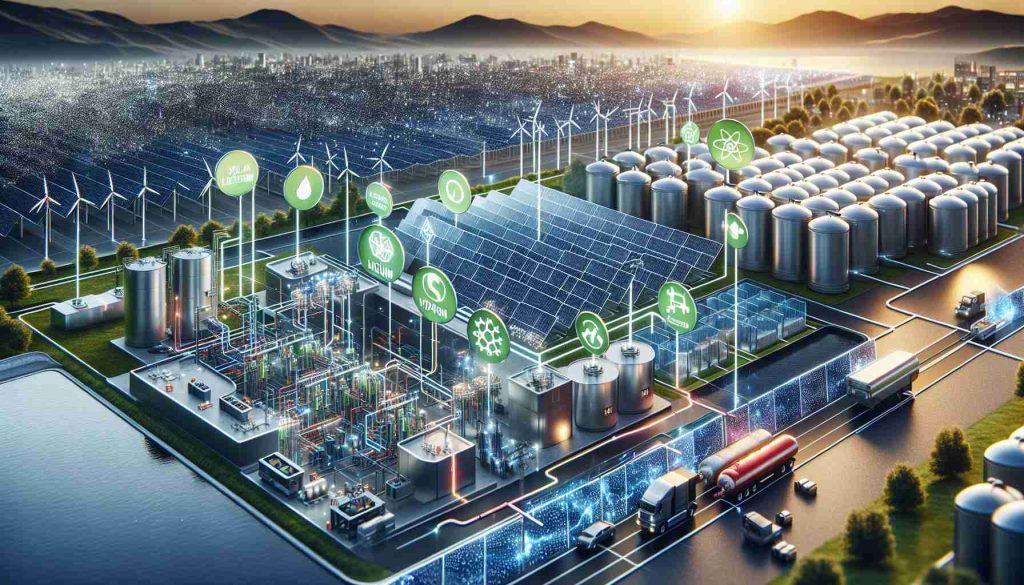Summary: A new study from the University of New South Wales, Australia, underscores the varying economic and sustainability characteristics of lithium-ion and hydrogen battery storage systems paired with rooftop solar panels. While lithium-ion batteries—exemplified by Tesla’s Powerwall 2—present a more cost-efficient and quicker return on investment, hydrogen-based systems, including the LAVO unit, boast a longer operational life. However, the latter’s reliance on significant water resources raises environmental concerns where water scarcity is an issue.
As the adoption of green energy grows, consumers must navigate a myriad of factors when choosing energy storage systems. Recent research sheds light on the differing lifespan and economic efficiency between lithium-ion and hydrogen batteries. Notably, the study identifies the shorter payback period associated with lithium-ion batteries, making them a financially attractive option in the short term with higher roundtrip efficiency. At the same time, hydrogen batteries demonstrate greater longevity due to their ability to withstand more charge cycles.
However, it’s not just economics at stake; environmental considerations must also be front and center. The potential impact of hydrogen storage systems on water resources is significant, especially in regions where water is scarce. Such concerns are central to making an informed decision about which battery technology to invest in.
This study serves as an essential touchstone for individuals and businesses weighing the benefits of solar battery storage solutions. It provides clarity on the trade-offs involved, guiding investment choices that align with both fiscal goals and sustainable values.
For further information on the sustainable energy sector and the latest market insights, the following industry resources are highly recommended:
– The International Energy Agency (IEA): [IEA Main Page](https://www.iea.org/)
– Bloomberg New Energy Finance (BNEF): [BNEF Main Page](https://about.bnef.com/)
– The U.S. Energy Information Administration (EIA): [EIA Main Page](https://www.eia.gov/)
These organizations offer comprehensive data and analyses for informed decision-making within the ever-evolving landscape of solar energy and battery storage technologies.
Lithium-ion vs. Hydrogen Battery Systems
The renewable energy industry is rapidly evolving, and a critical component of this evolution is the development of efficient energy storage systems. As identified by the study from the University of New South Wales, Australia, the choice between lithium-ion and hydrogen battery storage systems is complex and influenced by various factors. The industry is segmented by technologies where lithium-ion systems like Tesla’s Powerwall 2 are currently dominating due to their cost efficiency and faster return on investment. These batteries are known for their high energy density and efficiency, making them popular for residential solar applications.
On the other side, hydrogen storage systems, such as the LAVO unit, are emerging as a potential alternative with a longer lifespan. These systems are built to last and can handle more charge and discharge cycles than their lithium counterparts. However, the use of significant water resources is a notable drawback, particularly in arid regions where water conservation is a priority. Environmental implications are therefore a key consideration when evaluating the suitability of energy storage technologies.
Market Forecasts and Trends
The market for energy storage is rapidly expanding as the demand for renewable energy sources increases. Market forecasts suggest that the global energy storage market will continue to grow significantly in the coming years, fueled by technological advancements, falling costs, and supportive government policies aimed at reducing carbon emissions. Prospects for lithium-ion technology are particularly strong due to the ongoing development and mass production of these batteries, with applications extending beyond residential storage to electric vehicles and large-scale grid storage.
However, hydrogen technology is also gaining traction, especially in the context of long-term energy storage and applications where battery size and weight are constraints, such as in transportation and industrial sectors. The capacity for hydrogen to store energy for longer durations without degradation could drive its adoption, especially as the technology matures and costs decrease.
Industry Issues and Considerations
The growth of the energy storage industry is not without its challenges. Supply chain constraints, raw material availability, and environmental concerns related to mining and resource utilization are critical issues. For lithium-ion batteries, the sourcing of lithium, cobalt, and other critical minerals has raised questions about sustainability and ethical supply chains. For hydrogen systems, the method of hydrogen production—whether from renewable sources (green hydrogen) or fossil fuels (grey or blue hydrogen)—affects its environmental footprint.
Overall, the study highlights the importance of not only weighing economic efficiency but also considering the broader environmental and resource implications of different energy storage solutions. As the industry moves forward, it will also have to address policy, regulatory hurdles, and the development of infrastructure to support the adoption of these technologies.
For additional insights into energy trends, policy analysis, and market data, consult the following industry-leading organizations:
– The International Energy Agency (IEA)
– Bloomberg New Energy Finance (BNEF)
– The U.S. Energy Information Administration (EIA)
These sources provide valuable reports, statistics, and analysis that are crucial for stakeholders looking to navigate the intricate renewable energy storage market.
[embedded content]

Marcin Frąckiewicz is a renowned author and blogger, specializing in satellite communication and artificial intelligence. His insightful articles delve into the intricacies of these fields, offering readers a deep understanding of complex technological concepts. His work is known for its clarity and thoroughness.
This post was originally published on 3rd party site mentioned in the title of this site






